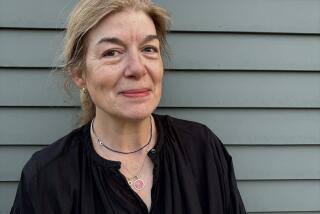FICTION
ADRIFT ON THE NILE by Naguib Mahfouz (Doubleday: $21; 166 pp.). Unlike “The Cairo Trilogy,” the strange, sprawling journey that introduced most Americans to Naguib Mahfouz, this jaunt on the Nile (first published in 1966 and newly translated into English) is remarkably accessible. Its alternately funny, searching and cynical plot recalls “The Big Chill” (a group of sprightly but fringy professionals gather in a houseboat to ruminate about feminism, love and life); “The Graduate” (the dreamy protagonist is forever upbraided for “looking inward, instead of outward like the rest of God’s creatures!”); and “The Trial” (“long, high-ceilinged offices” where “everything of value disappears”).
This is not to say that “Adrift on the Nile” could be mistaken for an American novel. While Mahfouz, the winner of the 1988 Nobel Prize for Literature, is the Arab world’s most popular novelist, it’s difficult to imagine Sidney Sheldon or some other best-selling American novelist writing sentences like “They discussed the higher basis on which life’s meaning had formerly rested.” Even this novel’s foreignness is compelling, however, for it tells us much about the Arabs’ discomfort at their awkward situation between a religious past and secular future. The houseboat on which these characters drift is Mahfouz’s symbol for that situation, and tellingly, they are only truly comfortable on it when the kif (hashish) pipe is afire.
More to Read
Sign up for our Book Club newsletter
Get the latest news, events and more from the Los Angeles Times Book Club, and help us get L.A. reading and talking.
You may occasionally receive promotional content from the Los Angeles Times.








